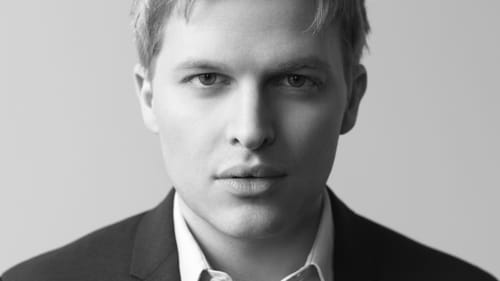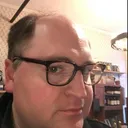Stay in the Loop
BSR publishes on a weekly schedule, with an email newsletter every Wednesday and Thursday morning. There’s no paywall, and subscribing is always free.
The rise of Ronan
‘Catch and Kill: Lies, Spies, and a Conspiracy to Protect Predators’ by Ronan Farrow

Five years ago, Ronan Farrow was best known as a Hollywood scion, one of several 20-something children of famous people all hired (seemingly without relevant experience) by MSNBC around the same time. Farrow’s daytime show got low ratings, and his name seemed to come up only in relation to speculation about his paternity. But his new memoir, Catch and Kill: Lies, Spies, and a Conspiracy to Protect Predators, continues to change that narrative.
Now, the son of Woody Allen and Mia Farrow is a Pulitzer Prize-winning journalist, one of the reporters who helped to bring down Harvey Weinstein and several other famous predators, and one of the few people in journalism whose every byline can honestly be seen as an event in itself. And he's done that all by the age of just 31.
A compelling narrative
In Catch and Kill, his new memoir—which he discussed at a November 26 appearance at the Free Library of Philadelphia—Farrow gives a compelling narrative of his reporting on the Weinstein story and others that followed. He also, for the first time, goes into detail on the obstacles he faced while doing so. There was Weinstein's notorious bullying, which included everything from threats of lawsuits to actual spying from the Mossad veterans in Black Cube, and interference from famous people, including some whom Farrow believed were his friends.
And then there was the interference from Farrow's own bosses at NBC, who slow-walked and then ultimately killed his Weinstein reporting—most likely because Weinstein pressured them to do so. Remarkably, more than two years after Farrow took his story to The New Yorker, all of those executives remain in place at NBC. This includes NBC News president Noah Oppenheim, who comes across in the book as especially gutless. Oppenheim, in addition to his NBC duties, has a sideline as a screenwriter and wrote the film Jackie; the book has an amusing running joke that repeatedly takes shots at that movie.
Among those on the wrong side of things in the book are several well-known individuals whom liberal Democratic types may consider allies; the lawyer Lisa Bloom, in particular, is depicted as a despicable snake who betrayed Farrow on Weinstein's behalf. The book even implies that Hillary Clinton, to whom Weinstein was long a donor, had delayed her participation in a Farrow book project as a result of his Weinstein reporting.

Picturing a movie
Of course, Farrow comes from a showbiz family, and the person his reporting helped to take down is a famous movie producer, but Catch and Kill is uncommonly cinematic on its own merit. It's easy to see it being made into a great movie. Picture The Insider, only with a Hollywood producer, The National Enquirer, and Israeli spies mixed in—and a gay hero, as the book is full of punchy commentary from Farrow's partner, Pod Save America podcast cohost Jon Lovett.
And speaking of those spies—Farrow, in a practically unprecedented turn, actually gets them on the record to take him through exactly how they went about spying on him.
Taking questions
At the recent Free Library event, 6 ABC’s Tamala Edwards interviewed Farrow, and then took presubmitted questions from the audience, who asked about everything from his reporting process to his family’s history.
"We all as journalists bring our personal baggage and history when we report on a story," Farrow said onstage, in reference to his background. "I wasn't really conscious about the upsides and downsides of that background. It was more about when Harvey Weinstein aggressively weaponized that family history." As Farrow's first piece was preparing to go to press, Weinstein implied through his lawyers that Farrow had a conflict of interest, since his sister had accused their father of sexual abuse.
Honest in the book about moments of self-doubt, Farrow doesn't try to position himself as the hero. He acknowledges throughout that the women who accused Weinstein and the predators in his other stories are the ones who deserve credit for the #MeToo revolution. He also notes that some of the most accomplished journalists in the country, including the late, revered New York Times reporter David Carr, had come at Weinstein in the past and fallen short.
Too far?
One of the more tiresome arguments often made about the #MeToo movement is that it's gone too far, that anyone can pop up with an accusation and "ruin a man's life."

Farrow's book puts the lie to this in multiple ways. As he also pointed out at the Free Library, he and the other reporters whose work has made a difference in exposing high-profile predators have done so not with willy-nilly accusations but with deeply reported and vetted journalism that they took major risks to obtain. And that Weinstein and others like him got away with what they did for as long as they did—and that others continue to do so—is an indication that #MeToo hasn't gone nearly far enough.
“The Harvey Weinstein story was the archetypical example of ‘a story that couldn’t be broken’ because it’s a ‘he said/she said’ topic, and that just clearly wasn’t the case—there was a clearly compelling body of evidence,” Farrow said.
A worthy voice
Aside from a brief reference to "knowing [his] way around a paternity rumor," Farrow does not, in the book, address the longstanding speculation that his biological father is in fact Frank Sinatra, who was once married to his mother and to whom he bears a striking resemblance. However, at the Free Library, he received a question at the very end from the audience, asking if he has “a really great singing voice."
“Yeah, I do," he answered, following a slow build of laughter as the audience gradually got the joke.
What, When, Where
Author Ronan Farrow appeared in conversation with Tamala Edwards on November 26, 2019, at the Parkway Central Library, 1901 Vine St., Philadelphia. (215) 686-5322 or freelibrary.org.
The Parkway Central Library is a wheelchair-accessible venue.
Catch and Kill: Lies, Spies, and a Conspiracy to Protect Predators, by Ronan Farrow, Little Brown, 2019, 414 pages, hardcover, $30. Buy it here.
Sign up for our newsletter
All of the week's new articles, all in one place. Sign up for the free weekly BSR newsletters, and don't miss a conversation.
 Stephen Silver
Stephen Silver